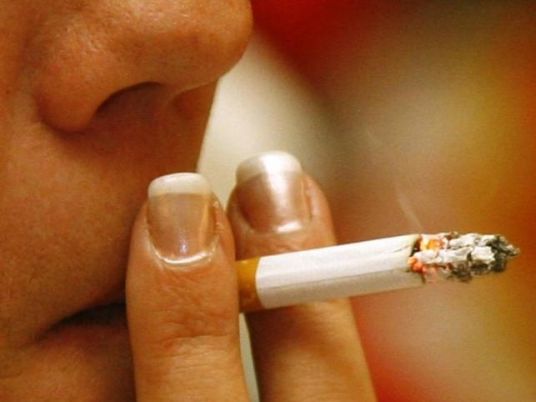
Doctors are more likely to give smokers antibiotics for an infection, a bad habit that may endanger public health by promoting antibiotic resistance, according to a US study.
Smokers were 20 percent to 30 percent more likely than non-smokers to get an antibiotic prescription when they were diagnosed with infections, researchers report in the American Journal of Preventive Medicine.
"If smokers are being prescribed antibiotics 20 to 30 percent more than other individuals, if not indicated, it’s going to contribute to that antibiotic resistance in society and bacteria are going to become more and more resistant," said lead author Dr. Michael Steinberg, of Rutgers Robert Wood Johnson Medical School in New Brunswick, New Jersey.
Inappropriate use of antibiotics allows bacteria to develop resistance, which makes the drugs less effective over time. The World Health Organization called antibiotic resistance a "global health crisis" in November.
Past research has shown that many respiratory infections are caused by viruses, which are not affected by antibiotics. Even for respiratory infections that are caused by bacteria, few people need antibiotics to recover. In one 2013 study, for instance, researchers found that more than 12,000 people with acute respiratory infections would need to get antibiotics to prevent one hospitalization for pneumonia.
"I think there is a clinical tradition of physicians being more liberal prescribing antibiotics for smokers than non-smokers," Steinberg told Reuters Health.
To determine how often smokers were prescribed antibiotics compared to non-smokers, the researchers used data on a nationally representative sample of 8,307 doctor's office visits between 2006 and 2010 for infections.
Half of all visits for infections ended up with antibiotics being prescribed.
Compared to non-smokers, researchers found that smokers were about 20 percent more likely to be prescribed antibiotics. When they only looked at visits for respiratory infections, smokers were 31 percent more likely to walk out with antibiotic prescriptions.
"You would think that the number of bacterial infections where antibiotics are clinically indicated should be evenly distributed among smokers and non-smokers," Steinberg said.
The study can't say why smokers are more likely to get antibiotics for infections, but Steinberg said it may be due to an inaccurate belief among doctors that people who smoke are more susceptible to infections.
"Smoking status alone shouldn’t be a reason to increase antibiotic rates," he said.
In addition to doctors following practice guidelines on prescribing antibiotics, Steinberg said that helping and encouraging smokers to quit might cut down on antibiotic resistance and benefit all of society.
"Tobacco use does have implications beyond the individual person," he said. "Smoking in our society can present broader issues like antibiotics resistance."




